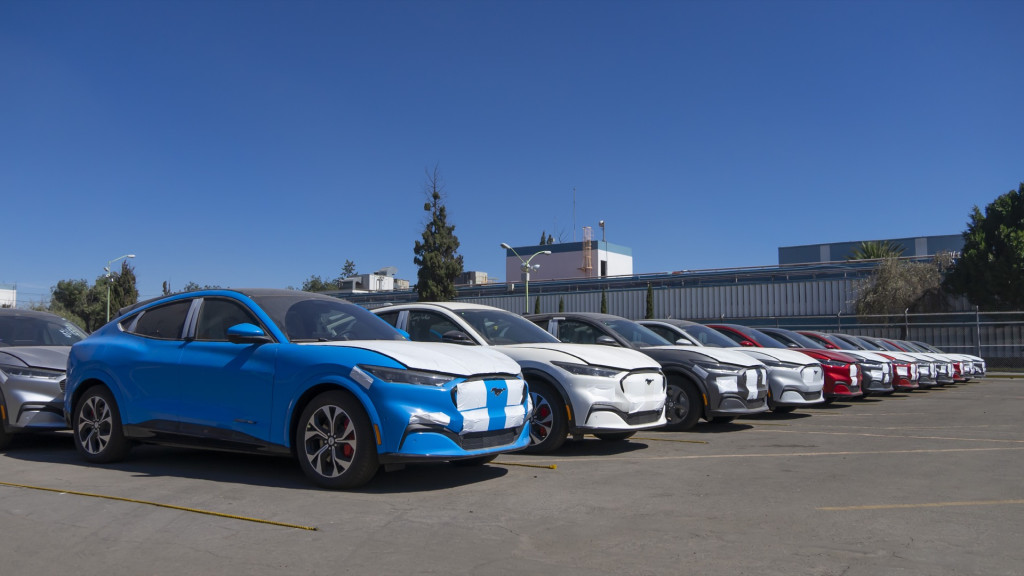Ford announced Monday morning that it’s lowering prices up to $5,900 on the 2023 Mustang Mach-E electric vehicle.
The price change undoes some but not all of the hefty price increase of up to $8,300 that Ford applied just a few months ago to the 2023 Mustang Mach-E, and it brings one more popular model—the Premium eAWD Standard Range—under the $55,000 ceiling.
Factoring in the tax credit of $7,500 that’s likely good until sometime in March, when the Treasury Department is expected to start enforcing domestic sourcing requirements, the bottom-line, destination-included price of that version will effectively be $47,795 for many households, tax rules permitting. And those seeking the lowest price on the Mach-E will find that a base Select RWD Standard Range version, priced at $47,295 including destination, effectively costs less than $40,000 at present with the tax credit.
Perhaps to help make up for the rift that the new $55,000 EV tax credit cutoff has introduced to the range—or in reaction to Tesla’s recent across-the-board price cuts of up to 20%—Ford has lowered prices on upper-trim versions of the Mach-E.
That includes especially significant cuts to models with the Extended Range battery. The California Route 1 AWD version, for instance, has been cut $5,580 to $59,295.
The additional cost of the Extended Range battery for the other versions has been cut $1,600, to $7,000, but that upgrade isn’t available on base Select versions. Therefore, those seeking the Extended Range versions of the Mach-E, which currently offer a range of up to 312 miles, won’t qualify for the tax credit.
2023 Ford Mustang Mach-E
The GT Performance Package also isn’t covered by this price change, and it remains at a $6,000 premium on the GT, but the price of the GT Extended Range has been dropped the most, at $5,900. It costs $63,995, excluding destination.
As before, none of the Mustang Mach-E models with the Extended Range battery pack will qualify for the revamped federal EV tax credit—meaning the maximum range of 247 miles applies to models qualifying for the credit.
Ford markets the Mach-E as an SUV. According to the IRS, which like the EPA classifies it as a passenger car, a $55,000 MSRP limit applies in order to qualify for the federal EV tax credit. That would include Select RWD, Select eAWD, and Premium RWD models, all with the Standard Range battery pack.

150,000th Ford Mustang Mach-E built
Ford says that those who are awaiting delivery of the Mach-E will automatically get the adjusted price. Ford is in the process of shifting to a no-haggle pricing strategy for its EVs, although at present dealerships still have the potential to mark up in-demand models.
There’s bigger change coming for the Mach-E lineup. Ford revealed last summer that China’s CATL will provide full battery packs for some North American Mach-E models starting later this year. And CEO Jim Farley has emphasized that Ford plans to “reengineer” the Mach-E incrementally, rather than waiting for a mid-cycle refresh.
The Mach-E has been a sales hit that took Ford a bit by surprise. Strong demand for the Mach-E led Ford to triple production of the Mach-E from the 2021 to the 2023 calendar year, with aims of 200,000 annual units of the model. Ford produced about 78,000 units of the Mach-E in 2022, and on Monday said that it plans to make 130,000 units in 2023.
